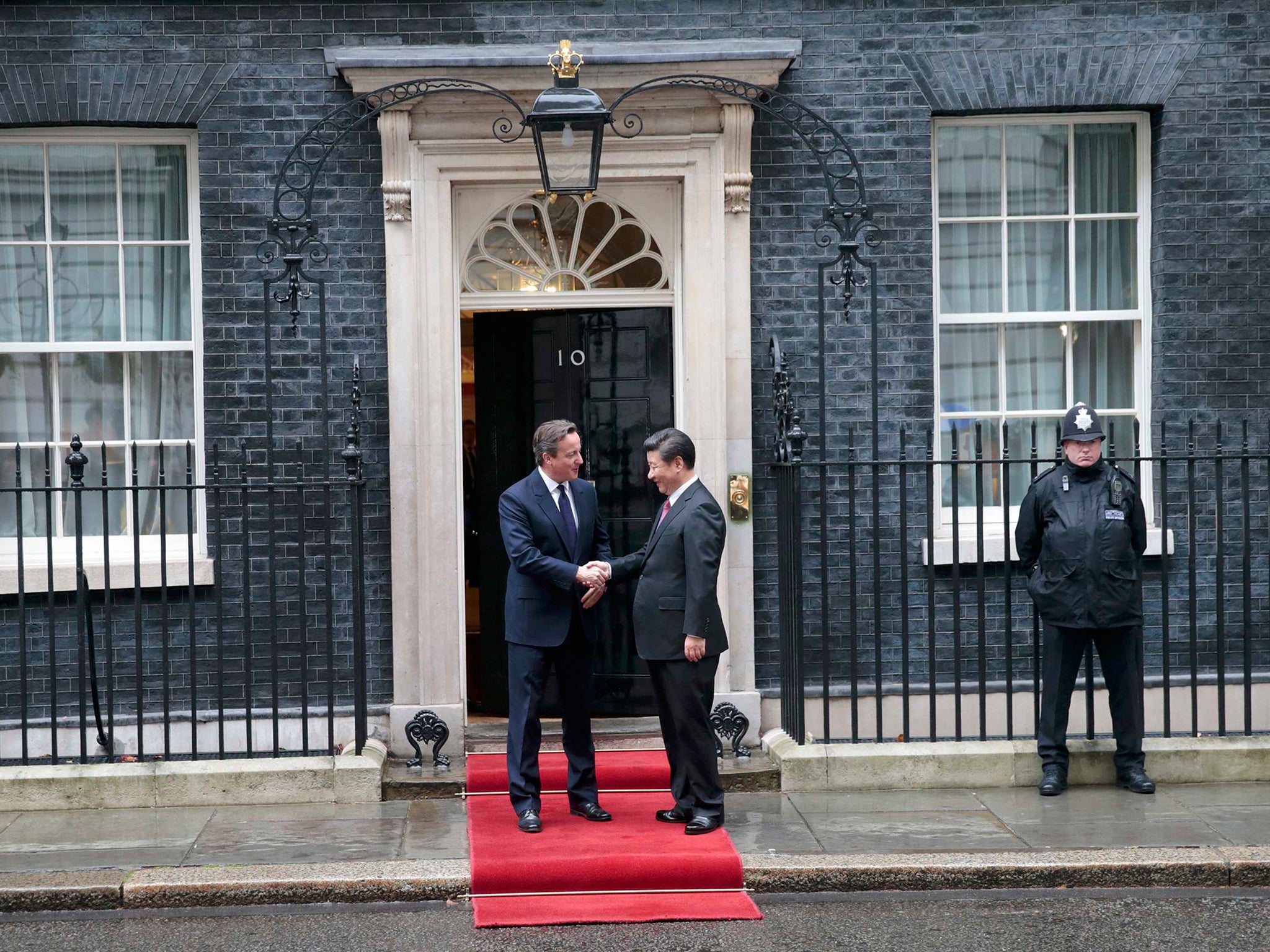We prefer importing bad values than exporting good ones
China's state visit isn't the first time that our diplomatic efforts have been questionable

Another dinner, another guest of honour who must be obeyed. A gala celebration at London’s historic Guildhall in honour of the visiting Head of State. He is a controversial leader of a country with increasing economic and educational ties to Britain. Human rights organisations are highly critical of his government’s apparent reluctance to address abuses, claiming that killings, kidnappings and intimidation are all too common in his country.
Seven months ago the UK played host to the president of Mexico, Enrique Peña Nieto. As a journalist who has covered Mexico for almost two decades – including a stint as the Mexico stringer for this newspaper – I followed plans for the state visit with interest.
Like China’s President Xi, who arrived this week, the Mexican President was also greeted by the Queen – and by protesters, incredulous that the UK was rolling out the red carpet for him. Peña Nieto’s government is alleged to have close ties to those believed responsible for the killing and forced disappearances of more than 43 students at a rural agricultural college in the state of Guerrero.
Let me set the scene: I’m in the press queue to cover a dinner given by the Lord Mayor of London in honour of the Mexican leader, and I recognise some of the Mexican journalists from a previous presidential visit. As far as I can tell, I’m the only British journalist in the pack. I hear my name called. A man is beckoning me out of the queue. “Right,” he says, almost jabbing the air with his finger. “What have you written that has upset someone very, very high up?” I’m momentarily stunned as I haven’t even started writing my piece yet – all I have done is post a few tweets, none of them particularly likely to upset anyone.
“You’ve made the mistake of believing in a free press haven’t you? … You know they don’t want you here, don’t you?” he added, giving me the firm impression that someone with influence wanted me out of the picture for this event. And that someone could be significant on the global stage, as I was unlikely to have ruffled feathers over an interview with the first Mexican footballer to play in the Premier League.
My interrogator told me he was “going to have to take away” my accreditation, and that I would have to leave the event. I pressed him for a real reason; I was told that the event was now “only for Mexicans”.
There’s a first time for everything, but I never expected to be banned from covering a dinner held in the UK because of my profession or my race. That sort of thing usually happens elsewhere. In Mexico, for example.
Visitors here should know better than to ask a UK institution to act in breach of our culture of press freedom – and our civic institutions should know better than to kowtow to such a request, even if acting to prevent “embarrassment” for a guest.
This year, 2015, is supposed to be the Year of Mexico in the UK and the UK in Mexico. The emphasis has been on boosting business – no bad thing when done ethically – and cultural links. This week’s visit from China shared some of those important aims.
But there’s a fine line between sharing and caring so much about signing a deal that we abandon what little principles we have left, going all out to win friends without thought for the long-term consequences.
China maintains an iron grip over media at home and stage-managed demonstrations are not uncommon. Premier Xi will have no doubt been delighted by Falun Gong and pro-Tibetan independence protestors being penned in, out of sight of the closed carriages that ferried him around London this week.
By giving a freer rein to those waving “homemade” flags and banners reportedly being handed out by staff from a box that appeared to have come from the Chinese embassy, has Cameron already crossed the red line?
What a shame that, instead of exporting some of the best of British to our new-found global partners, we seem to have already imported practices and attitudes that could lead us down a very slippery slope.
Join our commenting forum
Join thought-provoking conversations, follow other Independent readers and see their replies
Comments
Bookmark popover
Removed from bookmarks